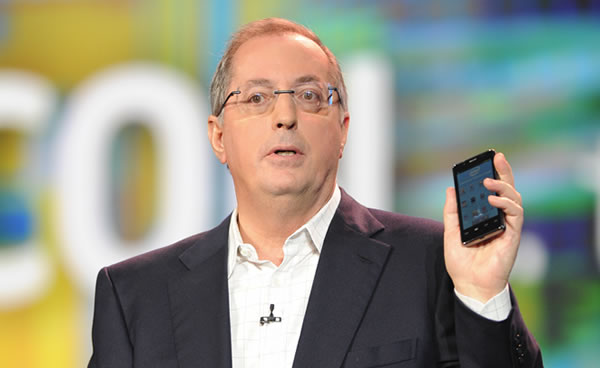Intel, Lenovo and Motorola have confirmed at the Consumer Electronics Show that they are working together to produce two new smartphone models. The announcement marks the first major bid by Intel to challenge the dominant U.K. based company ARM, whose chip designs power the majority of the world's best smartphones.
"Today, I'm thrilled to announce that the best of Intel's computing is now coming to smartphones," Intel president and CEO Paul Otellini told his CES keynote audience yesterday. "And it's coming first to China, the largest market for smartphones in the world, with 100 million users and growing rapidly."
When speaking about Lenovo, Ottelini said the relationship between the two firms was "just the beginning." Liu Jun, President of Lenovo mobile internet and digital home group joined Intel's CEO on the stage for the Lenovo announcement. "It is my great honor today, to introduce to you the world's first Intel architecture-based smartphone, the Lenovo Smartphone K800."

The Lenovo K800 is billed as a "simple, stylish and feature packed" smartphone. It has a 4.5-inch display, 720p video, Near-Field Communications (NFC), HDMI-out and Intel's WiDi to stream video content to a compatible HDTV. It will be powered by Intel's 32nm Medfield Atom Z2460 processor clocked at 1.6GHz.
"We are transforming Lenovo from a leading personal computer company to a leading personal internet device company," Liu further commented.
Ottelini said Intel's processors offer improved battery life, whilst still keeping features sought after like cameras up to 16 megapixels, rapid web browsing and capable graphics. Another Intel spokesperson added that both new smartphones, which will run Android 4.0 Ice Cream Sandwich, were "fully buzzword compliant."
Sanjay Jha, chairman and CEO of Motorola Mobility also joined Ottelini on the main stage to reveal details about their Intel-based smartphone. "I am especially proud to announce today that Motorola and Intel have entered into a multi-year, multi-device strategic partnership around mobile devices and smartphones."

Jha confirmed his company plans to have devices in the hands of carriers for validation sometime this summer, with the official launch following shortly after. "Stay tuned for the details in coming months," he said.
It looks like ARM might finally have some competition in the smartphone and tablet market, and I have to say I'm eager to get my hands on an Intel-based handset to see how strong the competition will be.